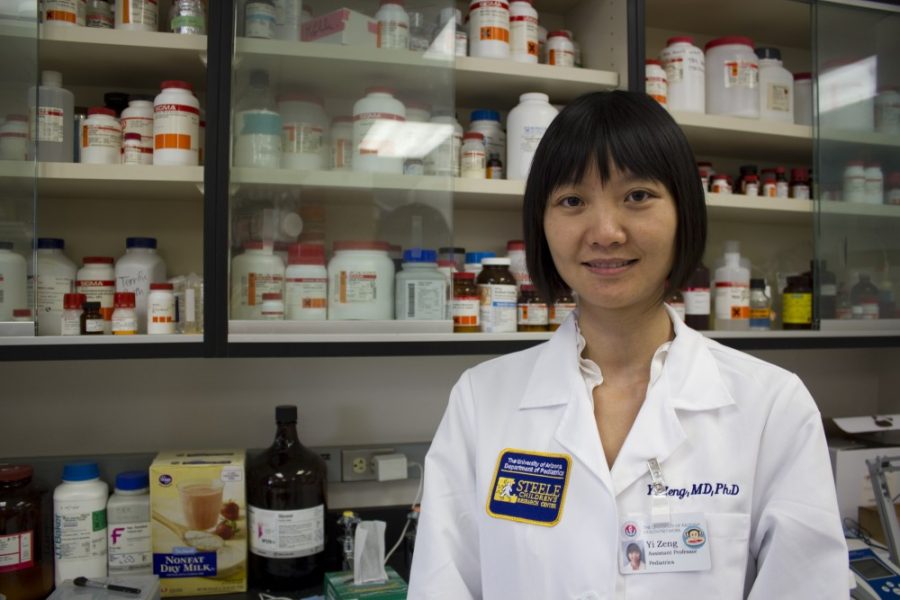For most new physicians, their typical day-to-day routine might consist of checking for urgent emails or going over lab results.
But for Yi Zeng, an assistant professor and a pediatrician, she has to deal with breaking cancer news to parents on a daily basis.
Zeng, who was hired in early September by the Department of Pediatrics and Health Network to the section of pediatric oncology, provides clinical care to children with cancer and blood disorders at the University of Arizona — Diamond Children’s Medical Center. She will also conduct pediatric cancer research at the UA Steele Children’s Research Center.
In her research, Zeng will focus on developing a cancer vaccine, which will help treat children and adults with relapsed or refractory leukemia. Currently, the research is waiting for approval by the Food and Drug Administration.
After the research passes through phase one and receives approval, Zeng will be able to continue on with her research, which can potentially help treat patients with high-risk leukemia.
Zeng was brought onto the pediatric oncology team by Emmanuel Katsanis, associate chair for research in the Department of Pediatrics.
“I brought her back not mainly to just take care of patients, but to continue her success in research,” he said.
Zeng graduated from the UA with a doctoral degree in microbiology in 2003. She said that during her first day of being an independent pediatrician, she had mixed emotions of nervousness and excitement.
“It was really exciting to come back and meet old friends and meet new people,” she said. “I was a little nervous about being independent around patients and just being a physician.”
As someone who enjoys seeing patients and taking care of children, Zeng said she wants to do more in terms of conducting research and developing new treatments for children with cancer.
“This is a unique field where you can apply the progress of research, which is why I decided to become a physician scientist,” Zeng said.
While taking care of children has been her passion, Zeng’s job is basically 25 percent of clinical work and 75 percent of research work, she said.
On a normal day-to-day basis, Zeng sits through two-hour meetings with patients’ parents to explain to them what type of cancer their child has been diagnosed with and the kind of treatment they have to go through.
Breaking this kind of news to patients is something she has to do every day, but it never gets any easier, she said.
“No matter how many times I have done this, you have to be honest with the family and tell them you may or may not be cured,” Zeng said. “It’s always emotional no matter how many times you have done it.”
While breaking that kind of news is a difficult part of her job, having to let parents know that they will stop treating their kid because there is no chance of cure is the most tragic part, she said.
“That’s the tough part, to say, ‘This is it, I’m not going to be able to cure your child and just let the child enjoy the rest of their lives,’” she added.
Although Zeng faces many difficulties on a daily basis, she said her job also includes many exciting moments, when she is able to announce to a patient that they are cancer-free or that their chemotherapy treatment turned out to be a success.
As Zeng faces the difficulties of becoming acquainted with her new job, she has been getting support from her colleagues. In the future, Zeng hopes to receive approval from the FDA to continue her research and apply for more grants.
“She is an excellent and outstanding scientist and physician,” Katsanis said.









